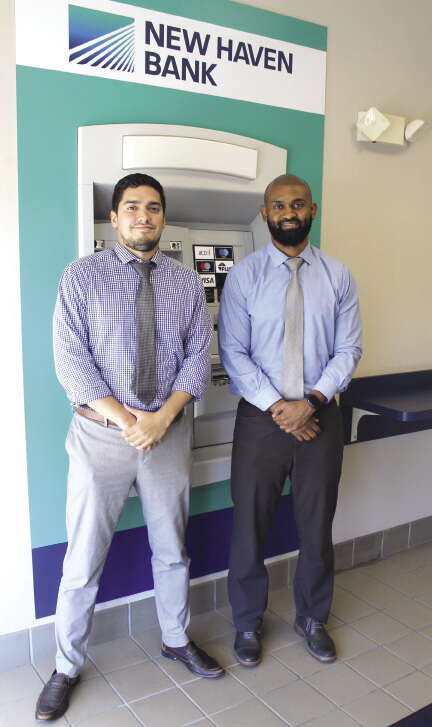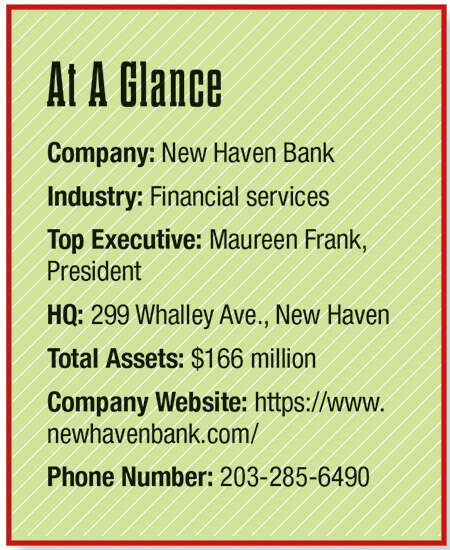
Processing Your Payment
Please do not leave this page until complete. This can take a few moments.
-
News
-
Editions
-
- Lists
-
Viewpoints
-
HBJ Events
-
Event Info
- 2024 Economic Outlook Webinar Presented by: NBT Bank
- Best Places to Work in Connecticut 2024
- Top 25 Women In Business Awards 2024
- Connecticut's Family Business Awards 2024
- What's Your Story? A Small Business Giveaway 2024 Presented By: Torrington Savings Bank
- 40 Under Forty Awards 2024
- C-Suite and Lifetime Achievement Awards 2024
- Connecticut's Health Care Heroes Awards 2024
-
-
Business Calendar
-
Custom Content
- News
-
Editions
View Digital Editions
Biweekly Issues
- April 15, 2024
- April 1, 2024
- March 18, 2024
- March 4, 2024
- February 19, 2024
- February 5, 2024
- January 22, 2024
- January 8, 2024
- Dec. 11, 2023
- + More
Special Editions
- Lists
- Viewpoints
-
HBJ Events
Event Info
- View all Events
- 2024 Economic Outlook Webinar Presented by: NBT Bank
- Best Places to Work in Connecticut 2024
- Top 25 Women In Business Awards 2024
- Connecticut's Family Business Awards 2024
- What's Your Story? A Small Business Giveaway 2024 Presented By: Torrington Savings Bank
- 40 Under Forty Awards 2024
- C-Suite and Lifetime Achievement Awards 2024
- Connecticut's Health Care Heroes Awards 2024
Award Honorees
- Business Calendar
- Custom Content
Growing New Haven Bank plans expansion to West Haven, Hamden
 Maureen Frank, President, New Haven Bank
Maureen Frank, President, New Haven Bank
If not for a last-minute snafu with a landlord, New Haven Bank would now be offering its services from a branch in West Haven.
Now that branch — plus one planned for Hamden — is back in the development stage, but New Haven Bank President Maureen Frank is confident that her institution will soon be expanding its footprint.
“It’s the bank’s goal to have a couple of branches open within the next two years,” Frank said.
The demographics of West Haven and Hamden align with the bank’s mission to expand loan access to economically disadvantaged communities, she said.
With $166 million in assets and an expanding staff of 22 people, Frank said the growth of New Haven Bank (NHB) reflects the success of its customers, small and medium-sized businesses in low-income sections of New Haven. Many of those businesses have survived the COVID-19 pandemic so far with the help of federal funds — and the banks like NHB that helped them during the worst of the crisis.
NHB dedicated a third of its staff to servicing Paycheck Protection Program (PPP) loans during two rounds in 2020 and a single round this year, Frank said. The bank processed more than 350 applications and $33 million in loans.
“We helped a lot of small businesses that couldn’t get the service that they needed from the larger institutions that they banked with,” Frank said. “We are now starting to develop other relationships with them. That worked to our advantage, but I also feel that we served the community well.”

Serving the community is baked into the mission of New Haven Bank, which is chartered as a Community Development Financial Institution (CDFI) that must do at least 60% of its lending in economically distressed communities.
Within the banking ecosystem, a CDFI bank tends to service small businesses like contractors and independent retailers, with NHB’s average loan totaling about $400,000. Regional banks like Liberty Bank operate at the next level, followed by national giants like TD Bank and Wells Fargo.
“Our business is small business,” said Executive Vice President John DeStefano Jr. DeStefano, a former 10-term New Haven mayor, helped found New Haven Bank in 2011. “We look at loans that not a lot of large banks can do.”
NHB was capitalized with $25 million in funds set aside from the demutualization of New Haven Savings Bank. (That bank merged with two others, then was purchased by First Niagara in 2010, which was then acquired by the parent of KeyBank in 2015.) Yale also kicked in $2 million to help found the bank.
Business banking shift
The NHB founders’ goal was to operate as a retail bank, “to bank the unbanked,” but they soon discovered that financial solvency depended on expanding its network of business customers.
“The engine of the economy has traditionally been small-business creation and growth,” said Rolan Joni Young, president of the NHB board and a partner at law firm McCarter & English LLP. “That’s part of the American spirit, entrepreneurship.”
Young joined the bank at the beginning as one of its original incorporators and chair of the board of the nonprofit entity that formed the bank. She has served as a director since 2011.
“As banks have continued to get bigger and bigger and less locally focused, it leaves open an opportunity for banks like us to say, ‘We are your local guys. Is there a way that we can help?’ ” Young said. “The future for our bank is a bright one; we’re always looking for an opportunity to continue to drive our mission.”
The shift to business banking led to profitability in five years, and the development of a locally based and supportive community for small businesses, DeStefano said.
In 2020, the bank reported net income of $1.9 million, down from $2.5 million in 2019, according to Federal Deposit Insurance Corp. data. As of June 30, it had $130.4 million in deposits, up from $123.2 million a year earlier, FDIC data show.
“You need to adhere to certain values, know the lane that you’re competitive in,” DeStefano said. “We’re not in it to satisfy a shareholder price, we’re in it to be here in the marketplace for our customers.”
“It had a rocky start,” agreed Frank, who joined the bank as president in 2014. “The fact that we were able to turn it around and prosper is significant.”

Another shift in focus came in 2019 when the institution changed its name from Start Bank to New Haven Bank. The move was made to increase brand recognition and reflect its status as the only remaining bank headquartered in the city.
Looking ahead, Frank has concerns about persistent inflation and the world’s supply chain crisis, but remains optimistic about New Haven’s outlook. Due to the city’s thriving biotech and residential real estate sectors, “I don’t see New Haven in particular being negatively impacted,” she said.
Expanding to West Haven and Hamden will allow NHB to reach a new crop of aspiring entrepreneurs, she said, even as it continues to work in its original service area.
Frank credits sustainable growth at both the bank and the city it serves with NHB’s survival and pending expansion. The name change also helped establish the bank's pride and roots in New Haven and raise its profile.
“All of those things are contributing to giving the bank some momentum,” Frank said. “We’re hoping to capitalize by expanding our retail footprint and continuing to do the work that we do.”


2022 Giving Guide
This special edition informs and connects businesses with nonprofit organizations that are aligned with what they care about. Each nonprofit profile provides a crisp snapshot of the organization’s mission, goals, area of service, giving and volunteer opportunities and board leadership.
Learn more
Subscribe
Hartford Business Journal provides the top coverage of news, trends, data, politics and personalities of the area’s business community. Get the news and information you need from the award-winning writers at HBJ. Don’t miss out - subscribe today.
Subscribe
2024 Book of Lists
Delivering Vital Marketplace Content and Context to Senior Decision Makers Throughout Greater Hartford and the State ... All Year Long!
Read Here-
2022 Giving Guide
This special edition informs and connects businesses with nonprofit organizations that are aligned with what they care about. Each nonprofit profile provides a crisp snapshot of the organization’s mission, goals, area of service, giving and volunteer opportunities and board leadership.
-
Subscribe
Hartford Business Journal provides the top coverage of news, trends, data, politics and personalities of the area’s business community. Get the news and information you need from the award-winning writers at HBJ. Don’t miss out - subscribe today.
-
2024 Book of Lists
Delivering Vital Marketplace Content and Context to Senior Decision Makers Throughout Greater Hartford and the State ... All Year Long!
ABOUT
ADVERTISE
NEW ENGLAND BUSINESS MEDIA SITES
No articles left
Get access now
In order to use this feature, we need some information from you. You can also login or register for a free account.
By clicking submit you are agreeing to our cookie usage and Privacy Policy
Already have an account? Login
Already have an account? Login
Want to create an account? Register
Get access now
In order to use this feature, we need some information from you. You can also login or register for a free account.
By clicking submit you are agreeing to our cookie usage and Privacy Policy
Already have an account? Login
Already have an account? Login
Want to create an account? Register






0 Comments